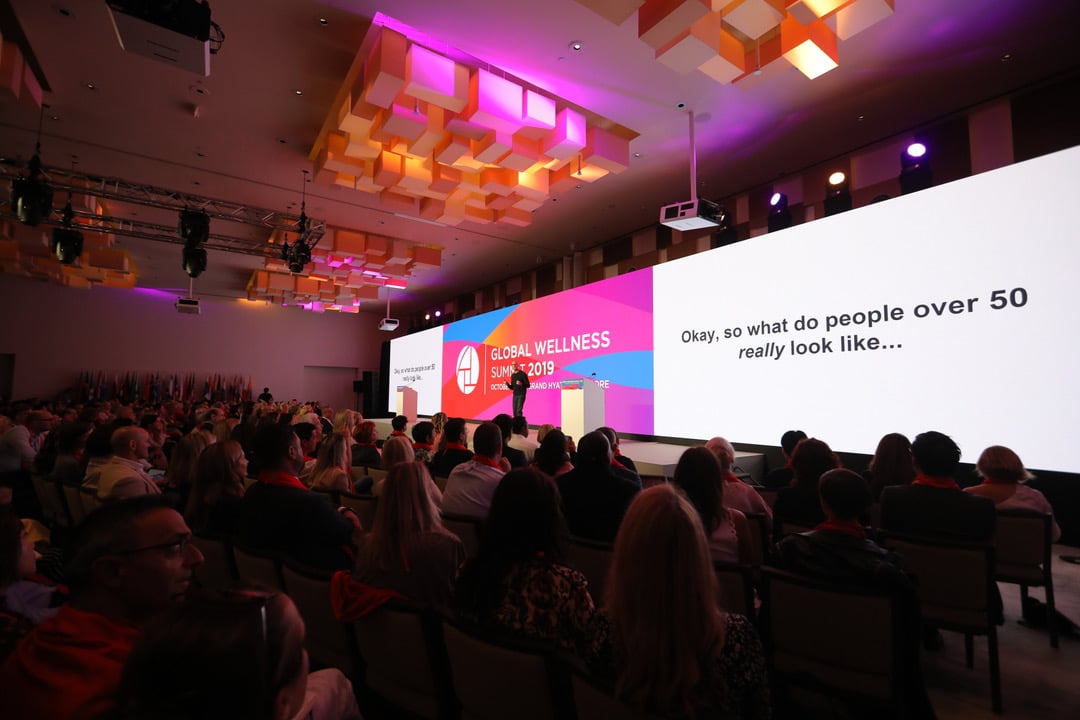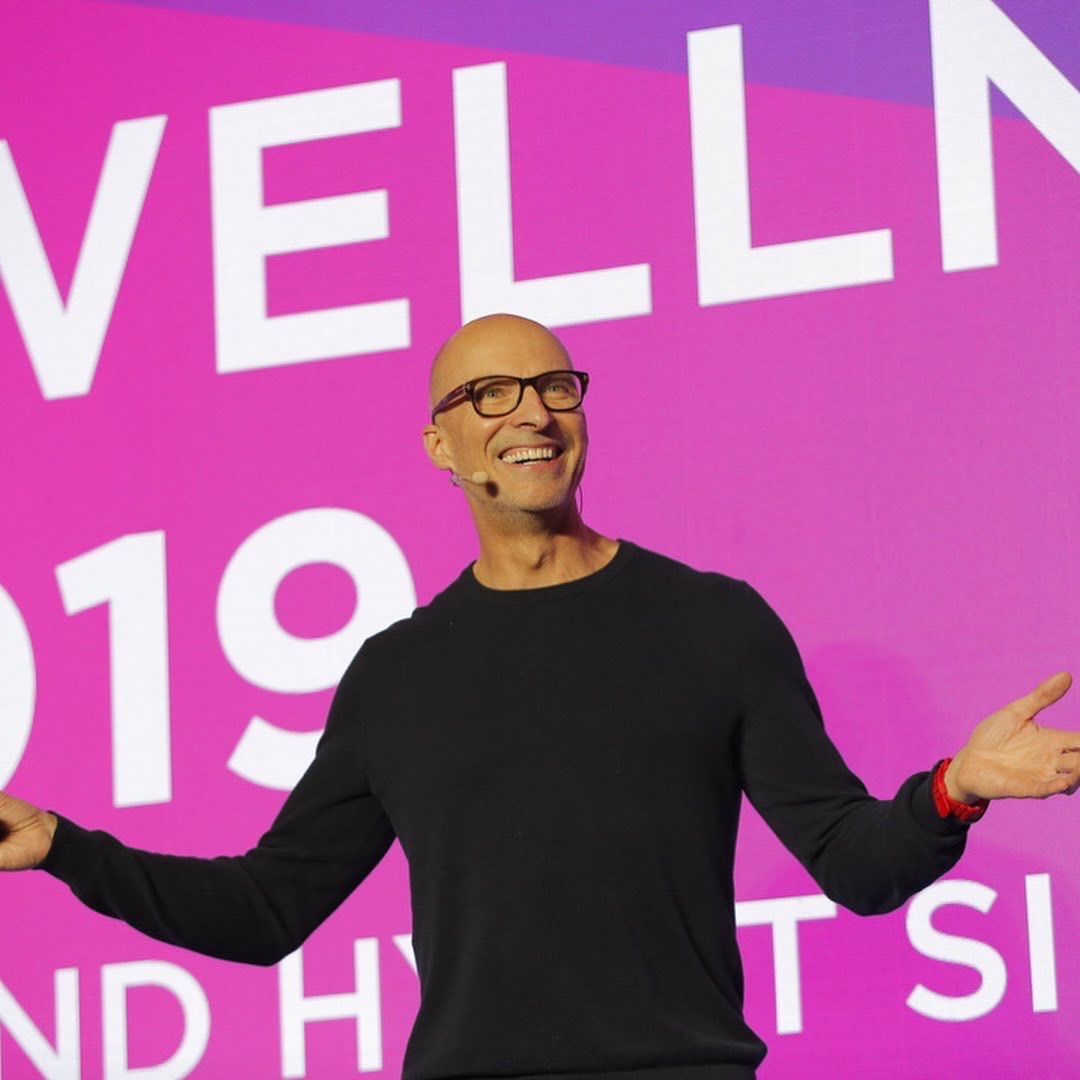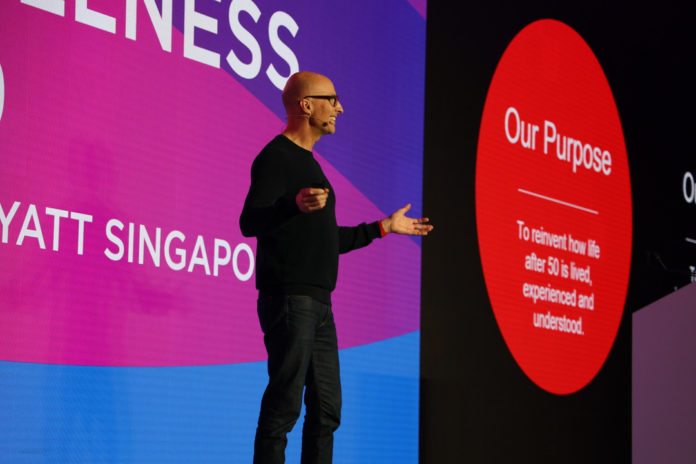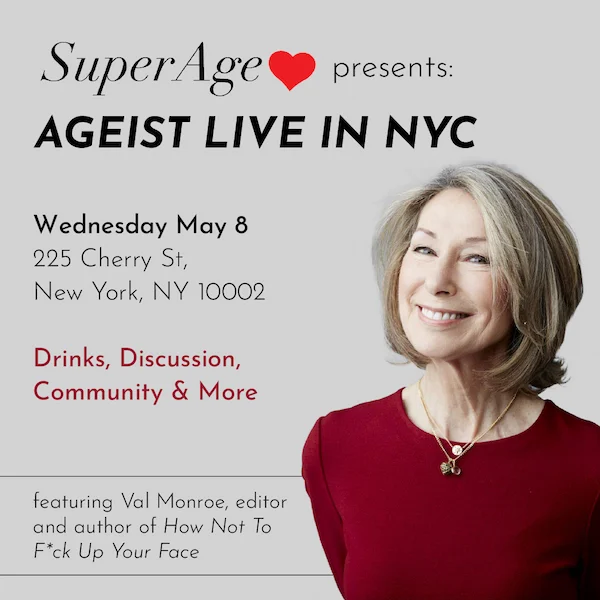What is wellness?
I was wrong. I confess to having had a certain petty counter-trend attitude of superiority around the word wellness. Although I would like to blame Gwyneth Paltrow- it is so easy to blame Gwyneth, this silliness was clearly the fault of my own lack of curiosity and a poverty of questioning on my part. I was making assumptions about an area I did not understand so that I could feel a tiny bit smarter. My bad.
Last week I delivered a keynote at The Global Wellness Summit in Singapore, surrounded by the world’s leading experts on their topics- religion, health, fitness, environmental concerns, nutrition, technology, transportation, hospitality, media, stress recovery, and of course age. My talk on AGEIST’s world view was enthusiastically received – much to my relief, as these are not the sort of people to disappoint with a dull recitation of facts. There is northing that focuses the mind more than getting on stage in front of a crowd of this prestige and imagining a total verbal blackout. As I told one man afterwards- yes, of course I rehearsed, maybe 50 times.

But the big deal for me was not the presenting, it was the listening and learning. Once in a while, we are given opportunities to change in profound ways, in which we are challenged in our thinking. This was one of those moments for me. Surrounded by people of great knowledge and accomplishment, it was clear to me how much of what we do at AGEIST, living your best life now, interlocks with the concept of wellness. We have the word in our menu on the site, but I was never sure exactly what the word really meant, how powerful it was, and how utterly important it was.
Wellness is a human right
Being there, and hearing about the crises of drinkable water in so much of the world, men’s mental health issues, the healing that comes from slowing down and listening, and all the facets of what wellness means around the world, I am now converted to fully embracing the term. Why? Because wellness is a human right – it encompasses a huge range of things, all of which mean living a life of dignity and meaning. Medical health is part of it, but so is mental health, fitness, spirituality, relationships, food, sleep… To this end, although we already do this somewhat, I am now committed to every week prioritizing content that addresses wellness. Without wellness, we are simply unwell, and who wants that?

This week I want to leave you with something that Dr. Martin Palmer spoke about. Dr. Palmer is the Director of the International Consultancy on Religion, Education and Culture (ICOREC) and secretary-general of the Alliance of Religions and Conservation, and the translator of a number of ancient Chinese religious texts. Dr Martin is not a shy timid religious sort of fellow, rather he is energized in a way martial arts people tend to be: ” You have totally failed in this area and I am disappointed.” You can imagine the effect that has on a group of mega achievers- total attention. His point was that 90% of the world’s population hold religious beliefs and that is a very good thing. He focused us to think of our lives as a blessing, and as such, how can we tend and improve the world around us? How can we make the garden better than we found it? His four suggestions were:
Tend our relations with god.
Tend our relations with neighbors.
Tend the relationship with ourselves.
Tend our relations with the rest of creation.
In AGEIST language, I would say be helpful, be useful, and believe in something greater than ourselves.




Bravo, David. Is there a link to watch your keynote online?
Hi Mary,
Not yet, but there will be. My understanding is mid-November they will be posting videos.
Thanks!